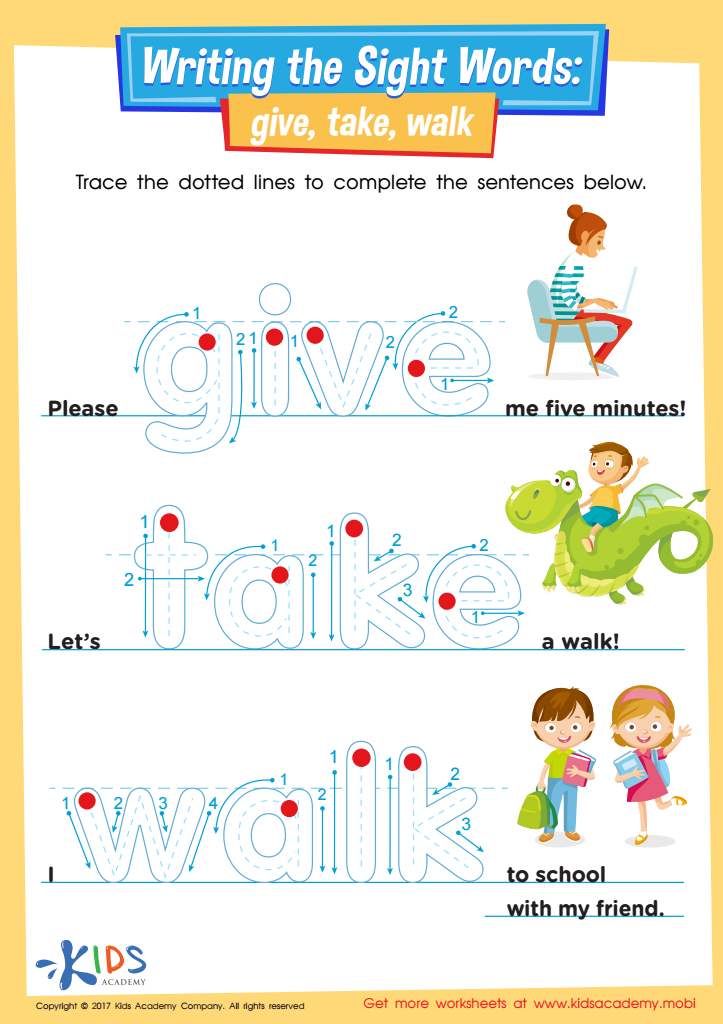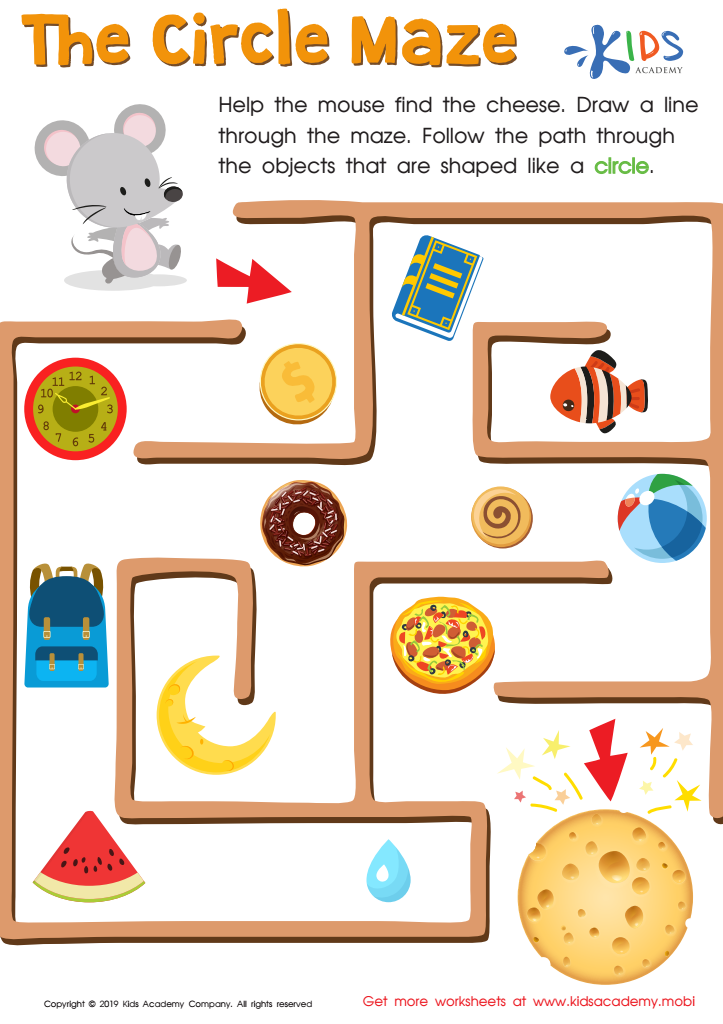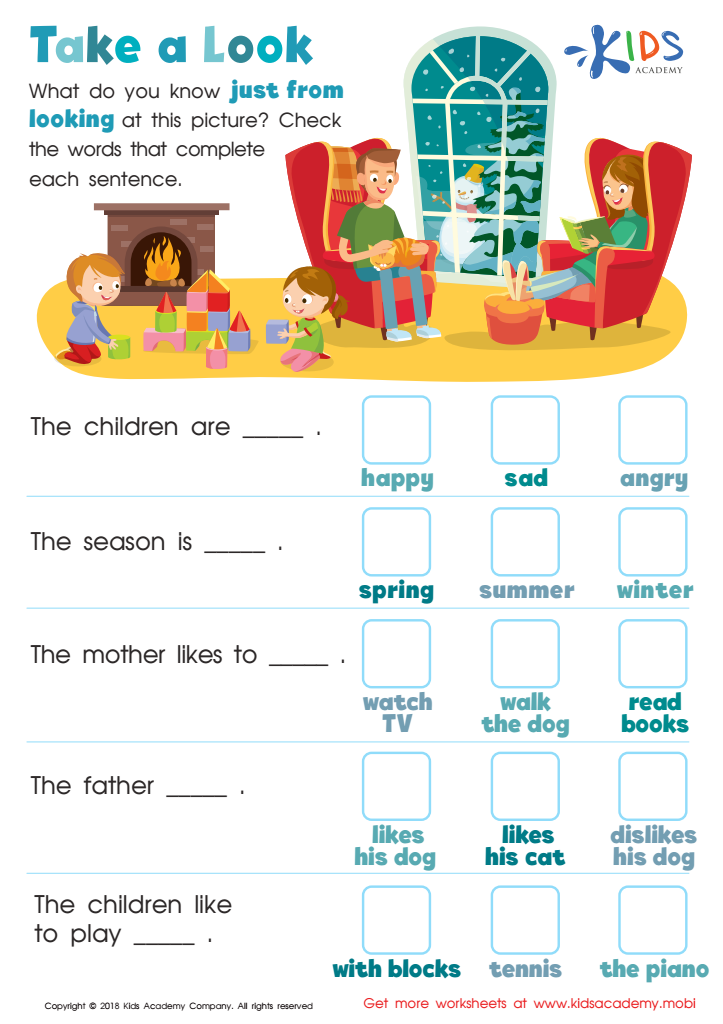Problem-Solving Skills English for Beginners Worksheets for Ages 5-6
3 filtered results
-
From - To
Enhance your child’s learning journey with our engaging Problem-Solving Skills English Worksheets, designed specifically for beginners aged 5-6. These interactive and fun worksheets foster critical thinking, creativity, and resourcefulness, making learning English an enjoyable experience. Each activity encourages kids to analyze scenarios, brainstorm solutions, and apply concepts in simple, relatable contexts. Our carefully crafted exercises are perfect for nurturing early problem-solving abilities while developing essential language skills. Ideal for both classroom and home use, these worksheets promote independent thinking and boost confidence in young learners. Start developing your child's problem-solving skills today for a strong academic foundation!


Give, Take, Walk Printable Sight Words Worksheet


The Circle Maze Worksheet


Take a Look - Part 1 Worksheet
Problem-solving skills are essential for young learners, especially for children aged 5-6, who are just beginning to navigate their educational journey. For parents and teachers, fostering these skills in early English language learners offers numerous benefits.
At this age, children are naturally curious, and cultivating problem-solving skills enhances their critical thinking abilities. As they learn to approach challenges, they develop persistence—a crucial trait for eventual academic success and life-long learning. These skills also build confidence, allowing children to express their thoughts and opinions effectively in English, a language they may be just acquiring.
Engaging young learners in problem-solving activities in English can enrich their vocabulary and language development. Through collaborative tasks, they practice communication, learn to listen to others, and articulate their ideas, creating a solid foundation for positive social interactions.
Moreover, problem-solving fosters creativity as children learn to think outside the box, exploring different solutions using language. Furthermore, these skills teach emotional regulation; they learn how to cope with frustration and disappointment when things don’t go as planned.
Ultimately, by prioritizing problem-solving skills, parents and teachers prepare children not only for future academic challenges but also for navigating life’s complexities in a connected and collaborative world.

 Assign to My Students
Assign to My Students












